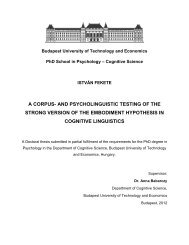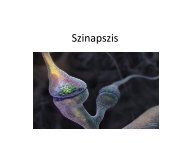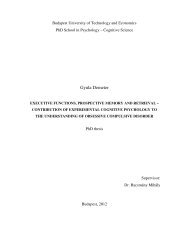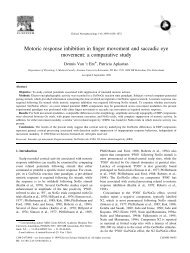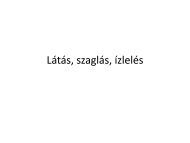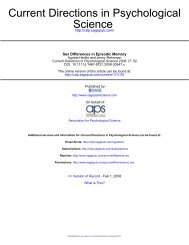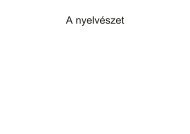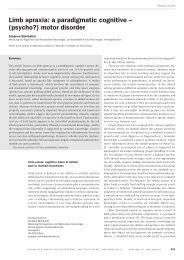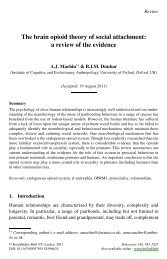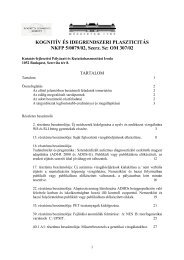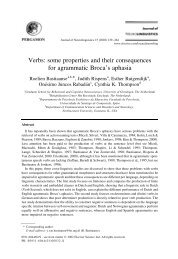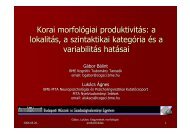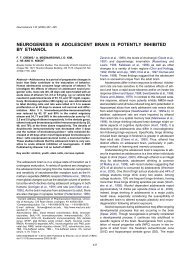Gyula Demeter PhD thesis booklet 1
Gyula Demeter PhD thesis booklet 1
Gyula Demeter PhD thesis booklet 1
You also want an ePaper? Increase the reach of your titles
YUMPU automatically turns print PDFs into web optimized ePapers that Google loves.
prepotent responses, set shifting and strategy use in memory probes –<br />
could be explained by failures of cognitive and behavioral inhibition.<br />
The neuroimaging studies support the involvement of the lateral and<br />
medial orbitofrontal cortex, the dorsal anterior cingulated cortex and<br />
the amygdale in OCD symptomatology (for review see Milad &<br />
Rauch, 2012).<br />
We think that executive functions play an important role in the<br />
realization of delayed intentions, in prospective memory (PM)<br />
performance. Many factors – such as motivation, stress, the<br />
properties of the PM cues, the characteristics of the ongoing task,<br />
planning and individual differences – influence the successful<br />
performance on PM tasks. In case of memory retrieval there is an<br />
impressive amount of data demonstrating that interference also plays<br />
an important role in forgetting (see e.g., Anderson & Neely, 1996).<br />
According to Anderson (2003) the need to resolve interference<br />
during retrieval induces executive control processes that overcome<br />
interference through inhibition of the interfering non-target memory.<br />
Executive function is an umbrella term and during our studies<br />
we focus on two main components that we consider critical in OCD:<br />
set shifting and inhibition. We want to find and answer to the<br />
questions: “If there is an executive function impairment regarding<br />
these main components, how is its pattern of distribution in the<br />
clinically impaired ranges and how does the severity of symptoms<br />
relate to the different neuropsychological scores?”<br />
As far as we know, we are the first group trying to connect<br />
executive impairment with PM function deficits in a clinical sample<br />
2<br />
of OCD patients in a series of experimental studies. Our second main<br />
question refers to this topic: “Is there a PM deficit in OCD and if so<br />
how can we interpret the findings and connect them to<br />
symptomatology?” We hypothesize that OCD patients will manifest<br />
extra monitoring activity in event-based PM tasks due to the<br />
overactivity of the PM system. This will result in increased reaction<br />
times in the ongoing and PM tasks and more false alarm type errors<br />
on the PM task.<br />
Our third guiding question group is related to the topic of<br />
episodic memory retrieval using the retrieval practice procedure: “Is<br />
the retrieval induced forgetting (RIF) a short or a long term effect,<br />
and what factors modulate its persistence or diminishment?; “Is this<br />
effect present in OCD?”; “How is affected by symptom severity,<br />
working respective short term memory capacity and anxiety?”. We<br />
hypothesize that if there is no active rehearsal the RIF effect will<br />
persist also after 12 hours and that sleep may play a critical role here.<br />
The diminished RIF effect in OCD could be attributed to the<br />
dysfunction of conflict detection processes observed in this disorder.<br />
The <strong>thesis</strong> tries to find answers to the above questions in four<br />
main <strong>thesis</strong> points: <strong>thesis</strong> I is related to executive functions, <strong>thesis</strong> II<br />
to PM and theses III and IV to episodic memory retrieval.<br />
3



